Customer Services
Copyright © 2025 Desertcart Holdings Limited


desertcart.com: The Oresteia: Agamemnon; The Libation Bearers; The Eumenides: 9780140443332: Aeschylus, Fagles, Robert, Stanford, W. B., Fagles, Robert, Fagles, Robert, Stanford, W. B.: Books Review: A fine collection of Aeschylus' magnum opus. - All drama exists in the shadow of the three great tragedians of Ancient Greece; Aeschylus, Sophocles, and Euripides. They wrote scores of plays apiece, but only scattered works of those survive. Of Aeschylus' body of work survives the least: plays numbering a mere seven. However, Aeschylus was cut a bit of a break, because three of those surviving seven form the only complete trilogy of plays from Ancient Greek theatre: the Oresteia (Sophocles' "Oedipus Rex", "Oedipus at Colonus", and "Antigone" are often grouped together as the "Theban Plays", but they are not a proper trilogy, which, in Greek theatre, was three interlinked plays performed together in one festival, alongside a fourth satyr play; the satyr play that accompanied the Oresteia has been lost. The scene is the aftermath of the Trojan War, where at least 50% of all Greek mythology seems to have its roots; the victorious Agammemnon returns home, taking with him the despoiled Trojan Princess Cassandra, cursed by Apollo to forever speak truth and never be believed. The war is over, but the echoes persist; indeed, the tragedy has its beginnings in the war's beginning, when Agammemnon, in order to facilitate the armada's crossing of the Aegean, sacrificed his daughter Iphigenia. His wife Clytemnestra, understandably, resents this; perhaps less understandably, she has been unfaithful to her husband in his long absence, and, together with her new lover Aegisthus, plots to kill her husband, as well as poor Cassandra. The repercussions of this redound through the next two plays, "The Libation Bearers" and "The Eumenides", as Agammemnon and Clytemnestra's son Orestes, together with his sister Electra, must decide how to avenge their father's murder. Orestes is in a Catch-22, having to reconcile contradictory demands of divine justice: avenging his father means murdering his mother, a crime to the Eumenides, while not avenging his father will offend Apollo. When looking at Greek drama from a modern perspective, the aspect that many people find the most challenging is the use of Choruses. The first play, "Agammemnon", makes the heaviest use of the Chorus, and I consider it the weakest of the three (by virtue of being the first, it also has a lot of setup). The following "The Libation Bearers" and "The Eumenides" are stronger, with more limited Choruses, and, since the crux of the latter, especially, are debates with dialogue, there is no sense that important actions are occurring offscreen (which was a major trope in Greek drama). These types of stories remain an acquired taste, but they are very enjoyable to those who get used to them. Aeschylus here uses the whole trilogy, and particularly the final play, to dramatize the development of current ideas concerning justice; explanations are given here for the existence of the twelve-man jury, for example. While I consider Sophocles to be the greatest of the three tragedians, Aeschylus' magnum opus is well worth the time of fans of classical drama and mythology. Review: “Zeus has led us on to know, the Helmsman lays it down as law that we must suffer, suffer into truth.” - The Oresteia was written by our man Aeschylus during a golden age of Athens. Art and civility began to flourish at this city upon a hill, not long after a set of ravaging wars with the Persian empire. In one sense, the city-state was ancient, but in another, it had become new again. The tragic playwrights arose from these circumstances. They were men who put on competing shows every Spring during the Festival of Dionysus. Aeschylus was the first of these authors whose work has endured the centuries and The Oresteia is the only surviving trilogy (though still incomplete as it’s missing its fourth satyr play, Proteus, which was meant to lighten the mood after such a heavy piece). What’s lost, we may never know, but what we have in the trilogy is an amazing story of civilization rising from the ashes of barbarism. This tripartite drama says many things, but on a superficial level: King Agamemnon of Argos returns home from Troy a hero, ten years after sacrificing his daughter for a successful expedition. His wife, Clytemnestra, and her lover, Aegisthus, have been awaiting his return, bent on murder. They justify that murder for their own reasons: Clytemnestra seeks justice for her daughter. Aegisthus desires payback for an older, if not more heinous, crime: Agamemnon’s father, Atreus, had tricked Aegisthus’ father into eating the flesh of his own son. Is it any wonder the house of Atreus had been cursed? Several years after the king’s death, Orestes, exiled son of Agamemnon and Clytemnestra, comes back home to mourn his father and seek his own piece of vengeful justice. Collaborating with his sister, Electra, he disguises himself as a traveler with news of Orestes’ death. He is invited in to the palace of Argos where he kills both his mother and Aegisthus. Even Stevens, right? Of course not. Now a perpetrator of matricide, a crime long considered wicked, the blood-stained Orestes is plagued by the Furies who hunt him like hounds. He purges himself at Apollo’s Oracle at Delphi, but still, he is not yet free from the spiritual guilt and madness brought on by the Furies. We begin to wonder, “Will it ever end?” Finally, Orestes heads to Athena’s temple where he and the Furies plead their cases before the goddess and a jury of wise men. In the end, Orestes is cleared of manslaughter, but of course the Furies are pissed. They seethe and cry out, threatening to unleash their unchecked rage on Athens. Again, “Will it ever end?” Thankfully, a necessary evolution takes place. Athena is forced to advance the ways of both Heaven and Earth. She suggests another path: the Mean, temperance. Athena convinces the Furies to focus their energies on the powers of civic justice and by the end of the final play, the Furies become a force for good, the Eumenides (the Kindly Ones). What a tale, and with so much said about the time and place where it was written. The Oresteia gives us a look at the evolution in which a new Athens stood above a barbarian world, a world which was struggling to release itself from the chains of blood vendettas and destructive tit-for-tats. It’s important to realize The Oresteia doesn’t end with the simple idea of “Right over Might.” Might was instead harnessed, redirected, to ensure Right on a grander scale. The Furies were a raw, earthly power. To quote a passage from Athena: “...you are set on the name of justice rather than the act.” In becoming the Eumenides, they married that raw energy to the potential grace of the Olympian gods. They were no longer blind anger. They were swift and orderly justice which kept the peace, promoting brotherhood over strife. As I mentioned in my review of The Iliad, mankind hasn’t changed much. The issues facing the Greeks are not much different from those facing us today. Whether Aeschylus’ vision was starry-eyed is up for debate. The play was seen as a celebration of Athens’ union with Argos, an event which would eventually arouse the armies of Sparta and end with them bivouacking in the Parthenon not long after. Maybe Aeschylus was the John Lennon of his day, a dreamer. Whatever the outcomes and motives, The Oresteia records the infancy of modern Western civilization. Again, Robert Fagles comes through with a compelling translation. The language is rich and the intentions seem to be true to the original text. This one gets another thumbs-up from me.

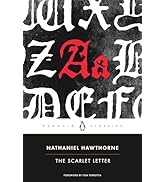



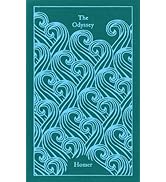



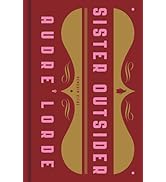

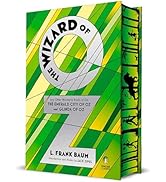
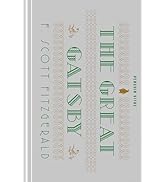

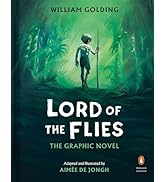



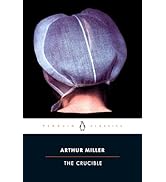

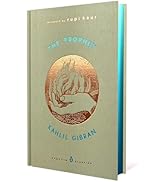

| Best Sellers Rank | #7,738 in Books ( See Top 100 in Books ) #3 in Ancient & Classical Dramas & Plays #3 in Classic Greek Literature #312 in Classic Literature & Fiction |
| Customer Reviews | 4.5 out of 5 stars 722 Reviews |
S**Y
A fine collection of Aeschylus' magnum opus.
All drama exists in the shadow of the three great tragedians of Ancient Greece; Aeschylus, Sophocles, and Euripides. They wrote scores of plays apiece, but only scattered works of those survive. Of Aeschylus' body of work survives the least: plays numbering a mere seven. However, Aeschylus was cut a bit of a break, because three of those surviving seven form the only complete trilogy of plays from Ancient Greek theatre: the Oresteia (Sophocles' "Oedipus Rex", "Oedipus at Colonus", and "Antigone" are often grouped together as the "Theban Plays", but they are not a proper trilogy, which, in Greek theatre, was three interlinked plays performed together in one festival, alongside a fourth satyr play; the satyr play that accompanied the Oresteia has been lost. The scene is the aftermath of the Trojan War, where at least 50% of all Greek mythology seems to have its roots; the victorious Agammemnon returns home, taking with him the despoiled Trojan Princess Cassandra, cursed by Apollo to forever speak truth and never be believed. The war is over, but the echoes persist; indeed, the tragedy has its beginnings in the war's beginning, when Agammemnon, in order to facilitate the armada's crossing of the Aegean, sacrificed his daughter Iphigenia. His wife Clytemnestra, understandably, resents this; perhaps less understandably, she has been unfaithful to her husband in his long absence, and, together with her new lover Aegisthus, plots to kill her husband, as well as poor Cassandra. The repercussions of this redound through the next two plays, "The Libation Bearers" and "The Eumenides", as Agammemnon and Clytemnestra's son Orestes, together with his sister Electra, must decide how to avenge their father's murder. Orestes is in a Catch-22, having to reconcile contradictory demands of divine justice: avenging his father means murdering his mother, a crime to the Eumenides, while not avenging his father will offend Apollo. When looking at Greek drama from a modern perspective, the aspect that many people find the most challenging is the use of Choruses. The first play, "Agammemnon", makes the heaviest use of the Chorus, and I consider it the weakest of the three (by virtue of being the first, it also has a lot of setup). The following "The Libation Bearers" and "The Eumenides" are stronger, with more limited Choruses, and, since the crux of the latter, especially, are debates with dialogue, there is no sense that important actions are occurring offscreen (which was a major trope in Greek drama). These types of stories remain an acquired taste, but they are very enjoyable to those who get used to them. Aeschylus here uses the whole trilogy, and particularly the final play, to dramatize the development of current ideas concerning justice; explanations are given here for the existence of the twelve-man jury, for example. While I consider Sophocles to be the greatest of the three tragedians, Aeschylus' magnum opus is well worth the time of fans of classical drama and mythology.
P**M
“Zeus has led us on to know, the Helmsman lays it down as law that we must suffer, suffer into truth.”
The Oresteia was written by our man Aeschylus during a golden age of Athens. Art and civility began to flourish at this city upon a hill, not long after a set of ravaging wars with the Persian empire. In one sense, the city-state was ancient, but in another, it had become new again. The tragic playwrights arose from these circumstances. They were men who put on competing shows every Spring during the Festival of Dionysus. Aeschylus was the first of these authors whose work has endured the centuries and The Oresteia is the only surviving trilogy (though still incomplete as it’s missing its fourth satyr play, Proteus, which was meant to lighten the mood after such a heavy piece). What’s lost, we may never know, but what we have in the trilogy is an amazing story of civilization rising from the ashes of barbarism. This tripartite drama says many things, but on a superficial level: King Agamemnon of Argos returns home from Troy a hero, ten years after sacrificing his daughter for a successful expedition. His wife, Clytemnestra, and her lover, Aegisthus, have been awaiting his return, bent on murder. They justify that murder for their own reasons: Clytemnestra seeks justice for her daughter. Aegisthus desires payback for an older, if not more heinous, crime: Agamemnon’s father, Atreus, had tricked Aegisthus’ father into eating the flesh of his own son. Is it any wonder the house of Atreus had been cursed? Several years after the king’s death, Orestes, exiled son of Agamemnon and Clytemnestra, comes back home to mourn his father and seek his own piece of vengeful justice. Collaborating with his sister, Electra, he disguises himself as a traveler with news of Orestes’ death. He is invited in to the palace of Argos where he kills both his mother and Aegisthus. Even Stevens, right? Of course not. Now a perpetrator of matricide, a crime long considered wicked, the blood-stained Orestes is plagued by the Furies who hunt him like hounds. He purges himself at Apollo’s Oracle at Delphi, but still, he is not yet free from the spiritual guilt and madness brought on by the Furies. We begin to wonder, “Will it ever end?” Finally, Orestes heads to Athena’s temple where he and the Furies plead their cases before the goddess and a jury of wise men. In the end, Orestes is cleared of manslaughter, but of course the Furies are pissed. They seethe and cry out, threatening to unleash their unchecked rage on Athens. Again, “Will it ever end?” Thankfully, a necessary evolution takes place. Athena is forced to advance the ways of both Heaven and Earth. She suggests another path: the Mean, temperance. Athena convinces the Furies to focus their energies on the powers of civic justice and by the end of the final play, the Furies become a force for good, the Eumenides (the Kindly Ones). What a tale, and with so much said about the time and place where it was written. The Oresteia gives us a look at the evolution in which a new Athens stood above a barbarian world, a world which was struggling to release itself from the chains of blood vendettas and destructive tit-for-tats. It’s important to realize The Oresteia doesn’t end with the simple idea of “Right over Might.” Might was instead harnessed, redirected, to ensure Right on a grander scale. The Furies were a raw, earthly power. To quote a passage from Athena: “...you are set on the name of justice rather than the act.” In becoming the Eumenides, they married that raw energy to the potential grace of the Olympian gods. They were no longer blind anger. They were swift and orderly justice which kept the peace, promoting brotherhood over strife. As I mentioned in my review of The Iliad, mankind hasn’t changed much. The issues facing the Greeks are not much different from those facing us today. Whether Aeschylus’ vision was starry-eyed is up for debate. The play was seen as a celebration of Athens’ union with Argos, an event which would eventually arouse the armies of Sparta and end with them bivouacking in the Parthenon not long after. Maybe Aeschylus was the John Lennon of his day, a dreamer. Whatever the outcomes and motives, The Oresteia records the infancy of modern Western civilization. Again, Robert Fagles comes through with a compelling translation. The language is rich and the intentions seem to be true to the original text. This one gets another thumbs-up from me.
M**O
Another View
As a great classic 'The Oresteia' by Aeschylus merits a full 5 stars. I will, however, question Aeschylus logic and motive in creating this play. Aeschylus was an Athenian who participated in the war with Persia and stated that he fought in the battle on the plain of Marathon. He is a patriot who promotes the glory and happy existence of Athens, the City of Athena. At the same time, the basic concept for this play is drawn from the Odyssey. In Homer's great work Odysseus [Ulysses] learns that Agammemnon, following the destruction of Troy, manages to successfully get home to Mycenae. He arrives with much loot and with his sexual slave, Cassandra, recently princess of Troy. Agammemnon receives quite a homecoming. He and Cassandra are slaughtered by Agammemnon's wife, Clytaemnestra, and her lover, Aegisthus. The motive for the killings are apparently multiple. Clytaemnestra is quite understandably outraged that Agammemnon, immediately prior to sailing away to Troy, sacrificed their daughter, Iphigeneia, for favorable winds. Clytaemnestra, perhaps in revenge, takes a lover and, along with him, plots Agammemnon's death. When Agammemnon actually does arrive, another motive arrives in the form of helpless Cassandra. Paradoxically, Clytaemnestra seems to be jealous. Another stated motive is power. Both Aegisthus and Clytemnestra supposedly want to be King and Queen of Mycenae--BUT--Clytemnestra is already Queen so this can't be her motive. She and her lover, Aegisthus, do both Agammemnon and Cassandra to death. Clytaemnestra's son by Agammemnon, Orestes, complicit with his sister, Electra, and egged on by the God, Apollo, kill both mother and lover. These are the bare bones of the story as told to Odysseus. Aeschylus, himself, can't deviate from the 'facts' as delivered in the Odyssey because virtually everyone in the Greek World knows the story by heart. Aeschylus, quite aware of the complexities and ironies of the situation, decides to use the story for his own purposes but it is a bit of a stretch. Interestingly, In Aeschylus' Play, Clytaemnestra facing death at the hands of her own son and arguing for her life, never once uses her strongest argument i.e. that Agammemnon had slaughtered Iphigeneia, Orestes' own sister. Later, when guilt-plagued [Furies-attacked] Orestes is tried for matricide in a trial presided over by Athena--including 10 wise Athenian judges--the prosecuting Furies don't once use their strongest prosecutorial point which is, again, Agammemnon's sacrifice of Iphigeneia. Instead, Apollo, working for the defense, says that he ordered/influenced Orestes to perform the act, therefore Orestes is innocent. Athena, who'd showed marked preference for the Greeks led by Agammemnon on the Plains of Troy, throws in her vote in favor of Orestes which apparently creates a 50-50 split, which by Athenian Law means that Orestes is freed of the Furies curse. This may be a minor point but with Athena acting as an 11th Juror there can be no 50-50 split. The play ends with Athena convincing the Furies to be 'good' and to bring only happiness to Athens. There is a lyrical paen to the benefit of glorious Athens. Several problems: There is a 50-50 split, therefore half of the judges regard Orestes as a criminal and matricide. An extension of this is that these jurors recognize the specious nature of the defense argument. Also, Cassandra, one of the more symphathetic figures of the Trojan War and, arguably, the most sympathetic figure of this play, is also murdered. Cassandra is entirely guiltless of any crime yet her murder is never laid at Clytaemnestra's feet. Apparently the murder of a slave, even a slave of Blood Royal, isn't regarded as much of a crime. Agammemnon, however, actually is guilty of a 'crime' against Clytaemnestra by sacrificing their daughter. On the other hand, Agammemnon's defense must surely be that it was a necessary sacrifice to the benefit of the Gods and the Gods, themselves, would probably praise rather than condemn Agammemnon for this otherwise loathesome act. At the same time, Clytaemnestra does loathe Agammemnon for it and this hatred likely directs her hand. This fact is lightly skimmed over in the play. In a sense, Orestes is not only a matricide but, in killing his mother, is indirectly complicit in his own sister's sacrifice. All this is skimmed over although neither Aeschylus nor his audience can be ignorant of these facts. I'll repeat. The major crime committed here is the murder of Cassandra, not Agammemnon or Clytemnestra. Either because of custom or because facts can be inconvenient, Aeschylus glosses over this almost entirely. In this light, 'The Orestia', for all its strength and beauty, becomes no more than a vehicle for Athenian propaganda. It wasn't enough. Fifty years later Athens was occupied by triumphant Spartans.
T**H
Challenging but Rewarding
I have done a lot of theatre over the years, but I have never been involved in a production of a Greek tragedy. Recently, I was involved in a reading of various versions of The Oresteia. Before going, however, I took the time to familiarize myself with the story by reading this. I learned a lot. Being a huge fan of Shakespeare, I could see some links as I read this; mainly, in the lengthy, poetic monologues which would have to be well-interpreted for a modern audience to follow along and enjoy. Unlike Shakespeare (which causes enough struggles for a modern audience), a lack of familiarity with the old Greek myths and stories offers a real challenge as does the use of the chorus and minimal action. Still, for an actor, there are some very interesting characters here: Agamemnon, Clytaemnestra, Orestes, Electra. I do have the advantage of being already familiar with the story. I was a great reader of mythology when I was a boy: Hamilton, Bulfinch, Graves, Homer. Even recently, I’ve gotten back into it with Stephen Fry’s series of books. I also found the introduction to this volume by Robert Fagles and W. B. Stanford very helpful. Still, this is an archaic style which even the biggest fan of theatre must admit is challenging. Worthwhile, but challenging.
R**I
General Notes on Translation and Conent
If you are college student and your professor has asked you to get a different translation, please ignore him or her politely and purchase this one. In the classroom this translation has proven to be invaluable to both me and my peers. Mr. Fagles gives us a very powerful translation of this text. This edition, unlike other's I've read, comes with some very useful material including a thorough introduction by Mr. Fagles, a genealogy tree of the house of Atreus, notes from the author that give a certain insight into certain aspects of the trilogy that I would've otherwise missed, and a glossary of terms and characters within Ancient Greek culture. If you're looking for a more lyrical, more elegant translation of The Oresteia, I recommend R. Lattimore. Consistently throughout all of his translations Mr. Fagles delivers a certain immediacy and harrowing depth in his renderings. The Three Theban Plays, no less profound than The Oresteia, represent another exemplary application of his abilities. Disparate of the notes on this translation, this trilogy and Ancient Greek plays in general, never fail to deliver to you a glimpse at the ontological status of Truth itself. These are some of the most important texts ever written; not due to plot, but due to their aims and their subtextual elements and how they arrive at them. Ancient Greek tragedy helps develop an understanding of topics such as Justice and Truth so expertly and so painfully that I feel no other texts (or very, very few others) can rightly be considered equal.
L**Z
One of the 1,000 books to read before you die
I would never had read this book if I hadn't ordered a book from Amazon called "1,000 Books to Read Before You Die" by James Mustich. I am so glad I read it because it gave me important background on mythological characters and the gods' values and the characters' values at that time. Readers beware. Women were not valued in a man's world.
L**N
This is the story of folding in the Animalistic people into a Lawful Democratic Society~Greek Ages
This was written on Marble tablets I believe, a tale as old as time. The Story of Agamemnon I recall I had to read in Middle school in the 80's was fascinating but i didn't realize there were these 2 other stories. For the state of our Union and our Democracy in the US, this is a great reminder of how Greek society tried to unite democratically with people who didn't act/react as they did, and knew they couldn't just ouster "the other" AGES ago! The Eumenides (aka Furies) is probably the most relevant history we could read right now.
M**D
School curr9
This book is part of my son's curriculum. I'm glad school requires classics not modern propaganda
Trustpilot
1 month ago
2 weeks ago